This is a new world. Whether you are a young child adapting to online classes, a grandmother ordering groceries on an app, a parent juggling kids and work, or a single young talent looking to navigate a career through this pandemic-induced market shift, you are feeling the effects of quarantine life in this COVID-19 crisis.
One thing is clear. We have all been forced to reflect on our lives, past, present and ambiguous future. We also live on our screens to stay connected to the world. This little factor has truly changed the way we work, and frankly who is actually working. While many people are sadly losing their jobs every day, some are quickly adapting to a new online environment, particularly in content output. Cue The Bambir and Lav Eli.
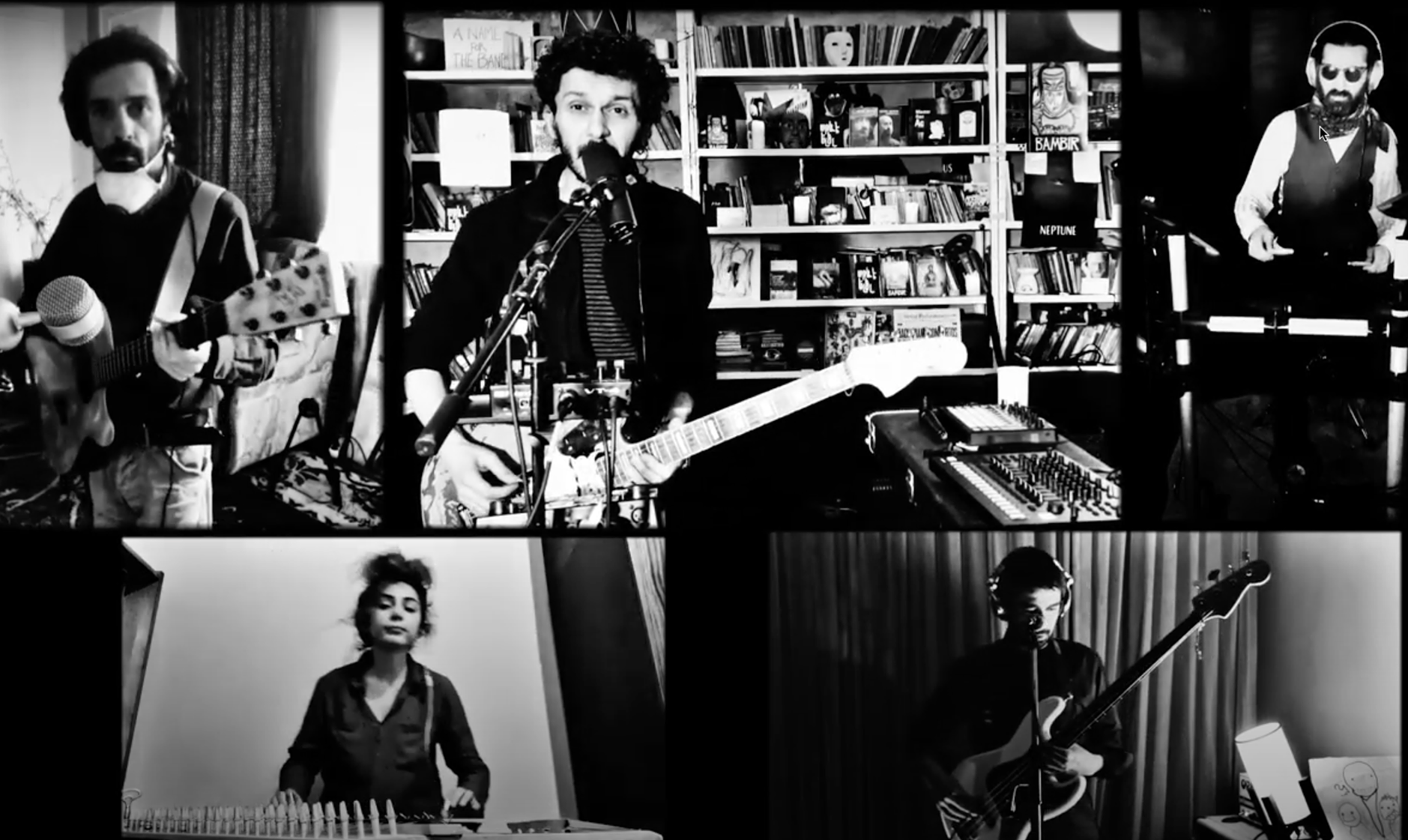
Before I go into the incredible musical event that went live recently, allow me to give background on these two bands and how they have impacted my life over the years. It didn’t occur to me that those names are not ubiquitous in the Diaspora. How could that be? They have been around for over two decades, and their music has exceeded popularity in Armenia.
When I moved to Armenia in 2001, I remember having no internet, no cell phone and only a Soviet-era TV with fuzzy CNN and four functioning Russian channels. What I did have was the invitation to go to a concert. I had already designed a CD cover for Gor Mkhitarian, one of the former musicians from Lav Eli. He was set to perform with his solo band, and Bambir was the opening act. They were set to perform at NPAK (Armenian Center for Contemporary Experimental Art), a hollow skeleton of a building that was used as an art gallery and music hall. It was in the middle of December and there were no heaters, so we were all huddled up with our winter coats trying to stay warm.
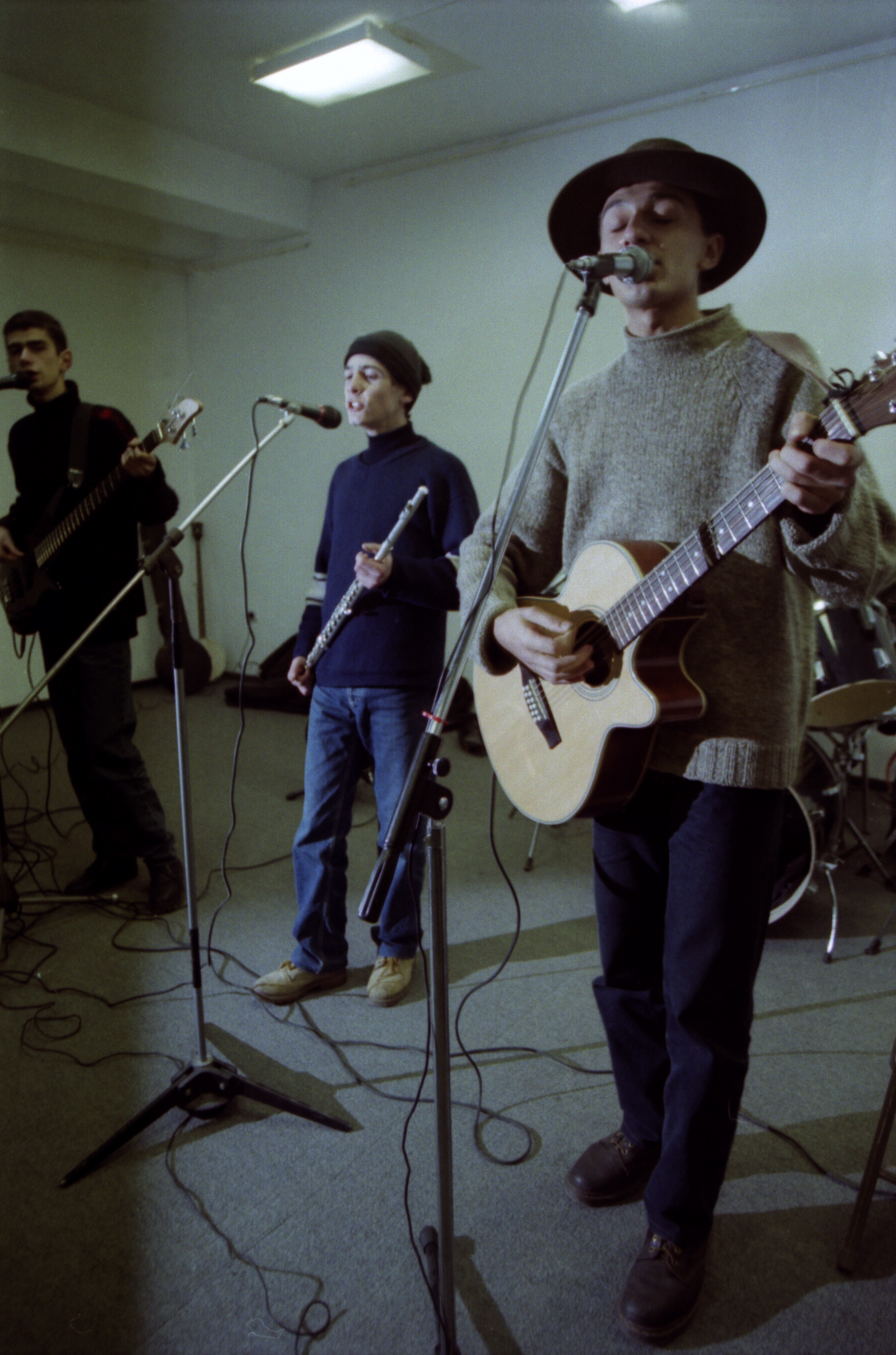
Bambir took the makeshift stage. They are the second generation of the original Bambir band, created by lead vocalist Narek Barseghyan’s father JAG. They were teenagers and full of life and soul. As they performed a fresh set, I remember thinking to myself, “Where has this been all my life? And how can I possibly share this moment with the rest of the world?”
Gor performed next, and his music was already reaching a few circles in the Diaspora. It continued to make me feel at home in a place and time that felt strange. I was one of very few Diaporans living in Armenia at the time, and these concerts revealed what was brewing under the surface. It became a place for everyone to come together and celebrate life. This became our lives. We took a trip once to Gor’s house in Vanadzor to meet up with his friends. Gor would do a jam session while we huddled over a tiny heater; we were so happy.
When I moved again in 2006, I spent two years going out every single night recreating that feeling over and over again. New bands and new collaborations kept it exciting and mind-blowing. I’ll never forget the night Nooz Band played at my husband’s bar, That Place. Artyom Manukyan turned his cello into an electric guitar with pure will. I looked around and all our jaws were dropped. Yet somehow, not one single person filmed any of it. At this point people had iPhones, but we couldn’t take our eyes off the show to even think of using them. I kept thinking to myself, ‘I can’t believe this is my life, I’m so lucky to be part of this.’ I would realize later how right I was.
Over the years, the bands endured their challenges, but continued to play music through it all. Bambir became The Bambir, traveled to Ireland for a while, always searching for the right producer, but never finding the one who would reach their potential. They experimented and explored different sounds, languages and countries. However they maintained their respect and love for music and seemingly returned to their roots more than ever. Arik went on to teach and inspire young new talents at TUMO, spreading the Armenian musical traditions. While others came and went through the musical scene, Narek, Arik, Arman and Vardan kept their authenticity and integrity as musicians and to each other.
Gor moved to the US early on but returns to Armenia frequently. His bond with Mher Manukyan seemed to grow stronger despite the distance. And his friendship with Aaron Stayman has kept him in the collaborative mix. Lav Eli somehow became a new phenomenon in Armenia where a generation younger than the band itself started becoming fascinated with their uplifting ballads.
Best of all, most of the band members started families and had kids, most recent being Narek, who had another baby just days ago. Congratulations, Narek!
These two particular bands who often played together two decades ago have grown closer in a new way. Now there is a new generation seeking them out. Young Armenians in Armenia want a culture to identify with, to call their own. Now in a world of Netflix and YouTube, they yearn for the music that speaks to their souls.
In September 2019, The Bambir, Lav Eli and Gor reunited for a big show at the newly reopened Cinema Russia venue, which had been shuttered since the Soviet era. It still smelled of wet concrete. Rusty nails were still sticking out of the walls. There were no seats, just cement slabs in a colosseum-style arrangement. The stage wasn’t even a stage; it was just another raised concrete slab.
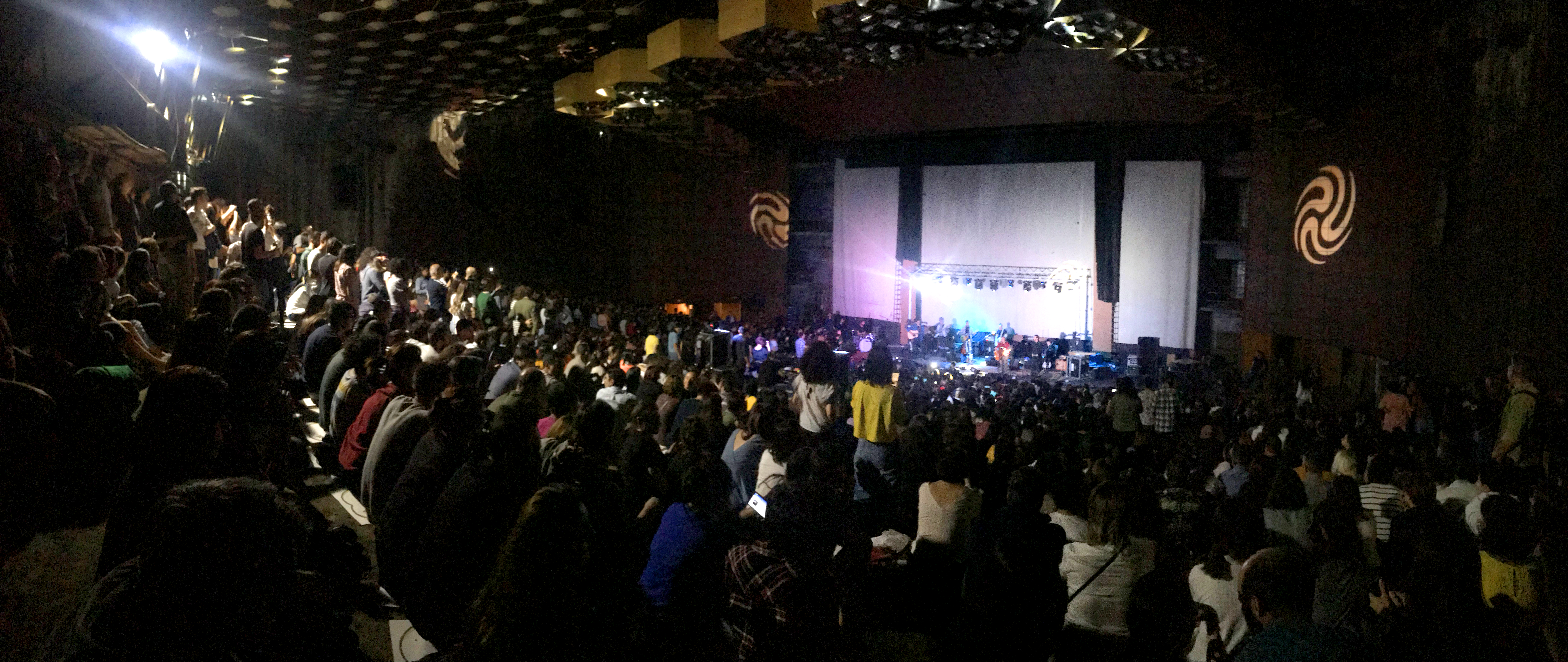
But the crowds didn’t care. I was there with my old friend Raffi Meneshian of Pomegranate Music, the producer of Gor’s first two albums, the original Bambir. We quickly started to realize that we were in for an emotional night. Almost everyone in the crowd was under 20 years of age, and there we stood looking at the legacy left by these musicians. They defined an era that shaped a generation. We were in so much awe. We felt giddy at the thought that we had a chance to be part of it. We felt like we were a part of Yerevan’s history.
The performance was out of this world. The entire room was dancing and singing along. The bands performed like they were teenagers again, and the love on the stage was palpable. After the show, Raffi and I went to congratulate the musicians, and it began to feel like an old reunion. It was then that I realized what these bands had done at a time when Armenia and the Diaspora were completely separate entities. They used music to unite us. We now have a shared history.
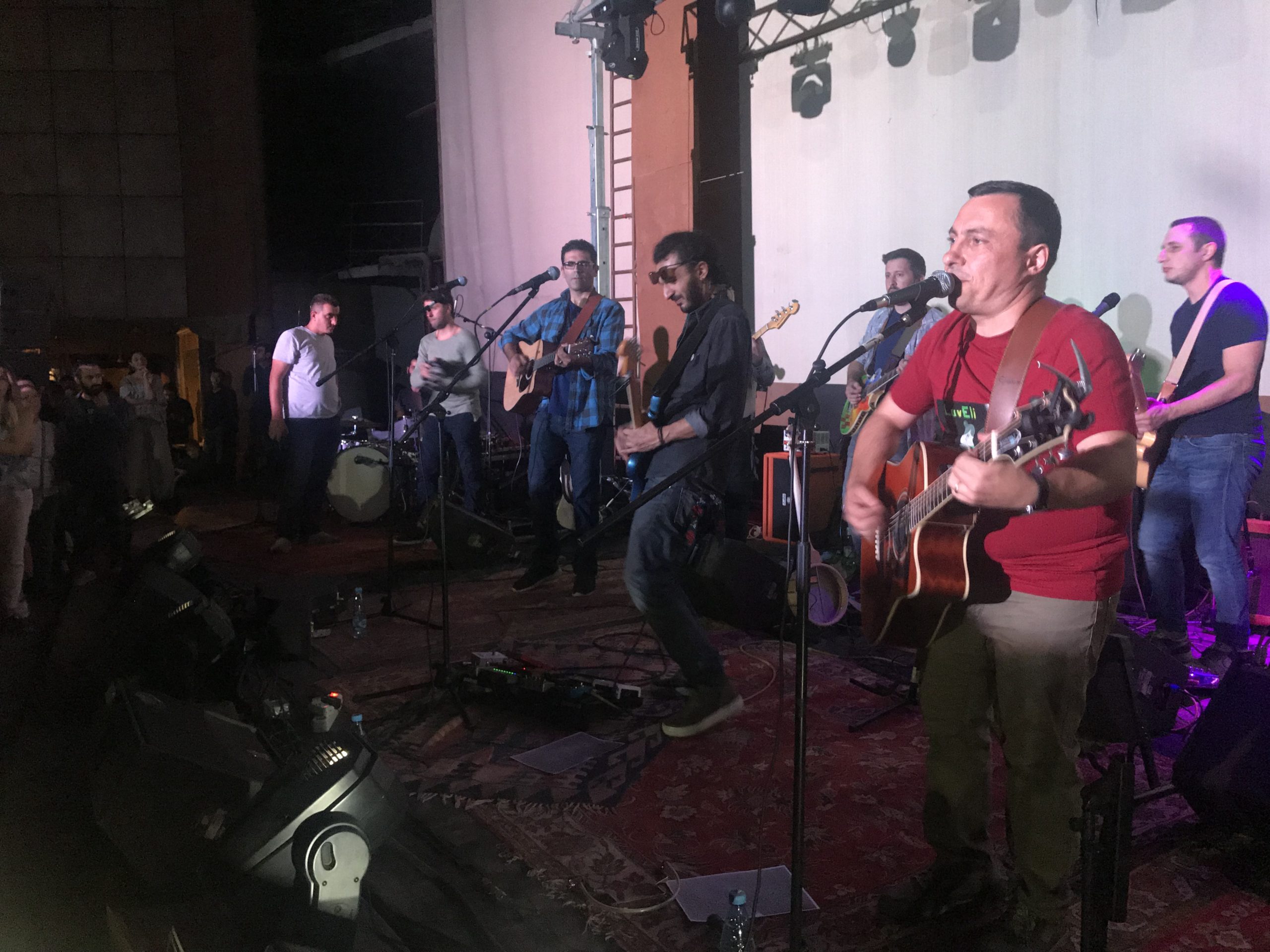
The Bambir performed again in November at another Soviet treasure, S.Temple. It’s a recording studio on the outskirts of Yerevan that seems like a time machine taking us three decades back. You can’t help but appreciate the amount of detail that went into building a sound-haven. Also recently hosted there were live recording performances by the Mikael Voskanyan Ensemble and Sebu Simonian of Capital Cities. But The Bambir performance was a more traditional setting, with a stage and live speakers. One difference I noticed was their tribute to more traditional Armenian music. Though they aren’t teenagers anymore, they maintain their youthful presentation and rock and roll vibes. They exude charisma and character that transcends generations and borders.
Watching that performance just felt like home again—the familiar faces in the crowd, the cold rustic Soviet environment and the stage full of hypnotizing artists. They set the stage years ago, left an impression on our lives, our culture and our bridge with the Diaspora. And now in the face of a world crisis, they are doing it again.
The world is now focused on content. We have nothing else to do. We are searching for valuable and educational content for our children. We turn to the internet to connect with people across the globe in search of common humanity. Meanwhile, The Bambir and Lav Eli are doing what I dreamt of 20 years ago. They are sharing the experience of their music online so I can share it with my other home, the Diaspora.
I was running after my kids the other day, frantically preparing files to send in an email to my coworkers eight time zones away. But I had five seconds to sign on and see their incredible live feed with 1,400 other live viewers. The video has garnered over 20,000 views since then. But I’m afraid there are a good number of viewers missing from that statistic: the Diaspora.
Eventually I had time to watch the entire performance. There wasn’t a musician missing from the set. From the original Bambir, JAG made a few appearances reading literature and singing a few of his classics while his son Narek set the mood with mellow guitar. Then Lav Eli took the virtual stage to lift our spirits with performances from all their band members from all over the globe. The Bambir continued to snap their fingers into technological phenomena with their latest release in black and white. This song forced me out of my chair and had me dancing along with them. As the video went on, there wasn’t a moment that didn’t lift my spirit, as if I were at their live show. From the visual treats of grasshoppers jumping around the screen to help viewers follow along with the lyrics to Narek’s wife getting dragged into the camera shot to dance along in the background, there was a harmony of collaboration across the globe in a moment that connected thousands of people. It was a performance for our time.
There’s no question, over the years we have had our share of love for some musicians from Armenia. A good number have even discovered and share the love for these two bands, but I can’t help but notice they remain unknown in most Armenian households around the world unlike their more popular counterparts—System of a Down, Armenchik or Tigran Hamasyan.
While geography might have been a key factor in that outcome, we now have an opportunity to see the hidden corners of what Armenia has to share. And now is the time to share back. More than ever, we are living online and our lives and creations are available for everyone to see in real time. Now more than ever, we are searching for the content that helps us find meaning in our lives and those of our children. Now more than ever, we are working to define the path forward in this world before it’s defined for us. Now more than ever, we are connected equally all over the world. Now more than ever, it’s time to share the love that The Bambir and Lav Eli have been sharing for decades. And now more than ever, love and passion, instead of obligation, are the driving forces behind this appreciation for our culture.
Tune in folks, I think you can expect a lot more to experience from the heart of Armenia. See you online!


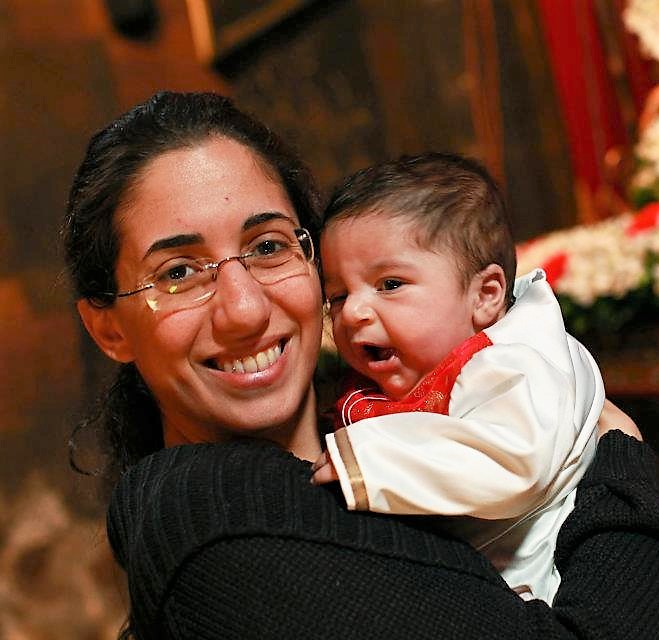
BAMBIR all the time favorite